Silicon Valley is ‘officially a retirement community for D.C. political vets’
A graying man — once the baby-faced press wrangler for Sen. Barack Obama’s nascent presidential campaign — nursed an absinthe cocktail as he mingled near a former spokesman for President George W. Bush’s 2004 reelection bid.
Nearby, one of Sen. John McCain’s most aggressive public advocates in his 2008 presidential campaign huddled with a man who spent the last several years as former President Bill Clinton’s liaison with the public.
The scene could have taken place over oysters at the Old Ebbitt Grill, a mainstay for politicos in the nation’s capital. But it unfolded in an exposed-brick bar in the South of Market district of San Francisco as veterans of President Obama’s administration who launched a marketing and communications firm in the nation’s capital celebrated the opening of their West Coast office. Like many veterans of high-profile campaigns in recent months, they had been drawn west by the opportunities in Silicon Valley.
“It’s good to see old friends and new faces as well. Or, as we like to call you, prospective clients,” said Ben LaBolt, a spokesman for Obama’s presidential campaigns who worked at the White House. Now LaBolt is a partner at Bully Pulpit Interactive, which has done work for companies such as Airbnb and Google as well as ballot initiatives and political advocacy campaigns.
“We set our sights on the West Coast,” LaBolt told scores of political operatives, many turned tech executives. “There are a lot of people out here creating change and bumping up against institutional actors committed to defending the status quo.”
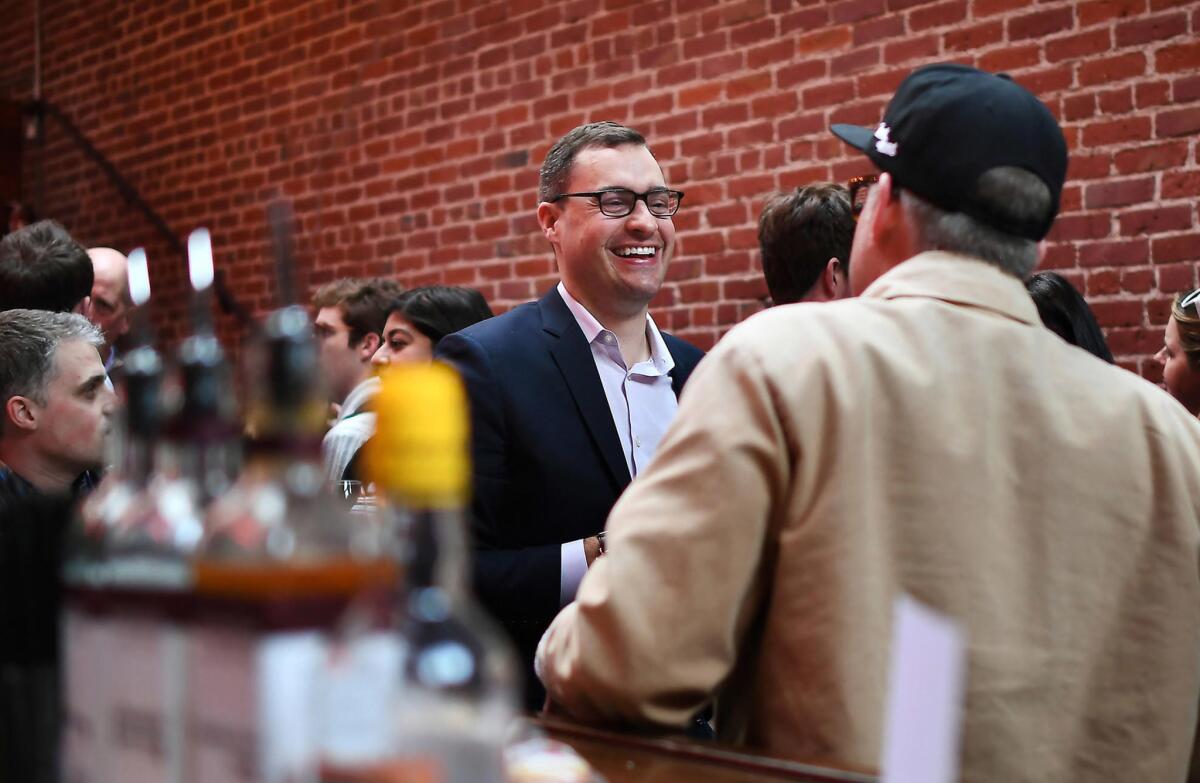
Veterans of high-profile political campaigns and White House administrations such as LaBolt — who in years past would have turned their public-service resumes and connections into jobs as lobbyists on K Street, advisers at Fortune 500 firms or leaders of nonprofits — are increasingly heading west, attracted by the opportunities to put their political skills to use in the technology industry. It can lead to strange bedfellows: Democrats and Republicans who fought each other while working on opposing campaigns find themselves working on shared goals and trying to affect change outside the nation’s gridlocked capital.
It’s a new gold rush — to social media companies, tech start-ups, incubators and key players in the sharing economy.
“Mall shoes. White cars. Buffet specials. Come and get it, this town is now officially a retirement community for D.C. political vets,” said Matt McKenna, who worked for Clinton for nearly a decade of his post-presidency before joining the ride-sharing company Uber and then launching a crisis-communications firm in Sausalito.
Beyond healthy six-figure salaries and better weather than Washington, D.C., the moves make sense — skills developed in politics are in critical demand in the Bay Area and Silicon Valley.
“In a lot of ways, a campaign is a lot like a start-up: You have to build it very fast, and be prepared to spend millions of dollars to persuade people your candidate is right,” said Matt David, the head of marketing and communications for the dating app Tinder.
David previously worked on John McCain’s 2008 presidential campaign, Jon Huntsman’s 2012 presidential bid and in support of Ohio Gov. John Kasich’s 2016 White House bid. He also worked on communications for former President George W. Bush and former California Gov. Arnold Schwarzenegger. David said he has implemented his campaign lessons, including how to monitor traditional and social media in real time, in his current job.
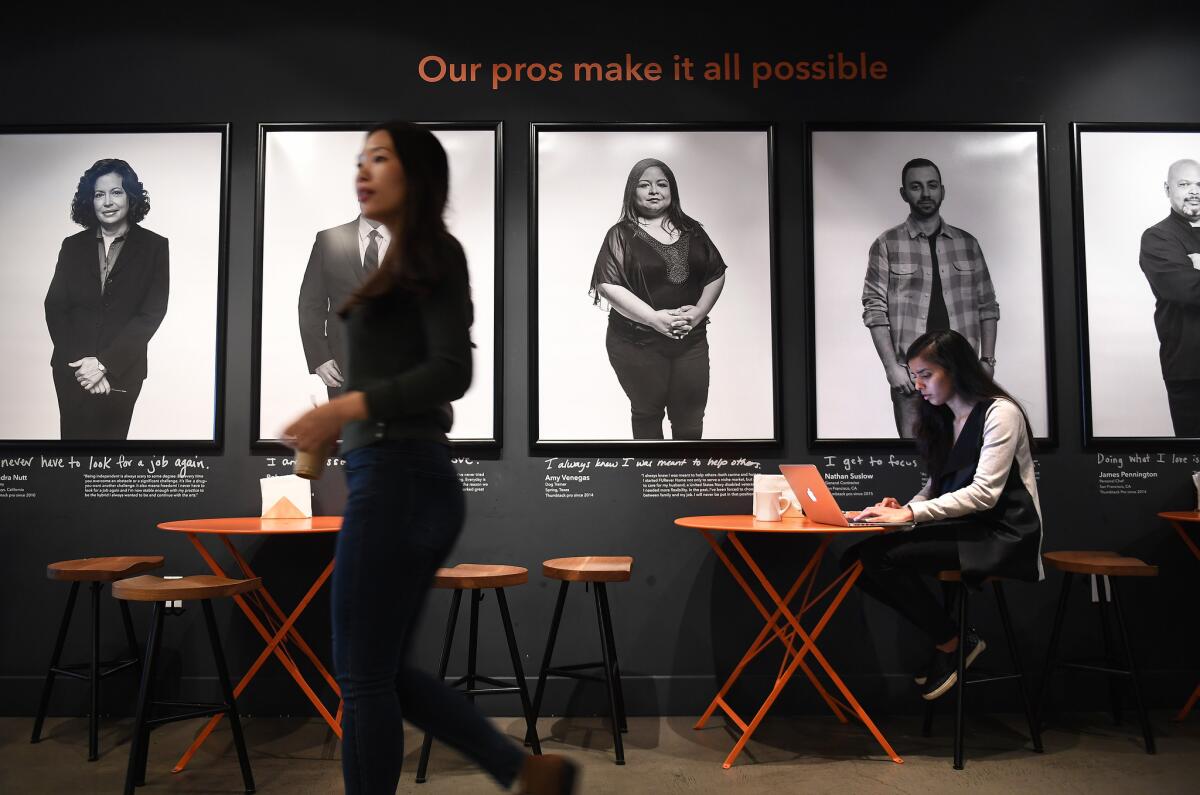
“You’re forced to read the news cycle every night when you go to bed, you know whether you won or lost that day — that type of training translates really well to tech,” he said.
Political operatives are in demand with young tech executives grappling with aggressive media, crises communications and thickets of government bureaucracy.
Travis Kalanick, the founder of Uber, was blunt about the parallels at a Code Conference: “We’re in a political campaign, and the candidate is Uber and the opponent is an [expletive] named Taxi.”
Uber, Lyft and Airbnb, companies whose creations outpaced existing laws, are textbook examples that showcase the niche that politicos can fill.
Chris Lehane, who became known as the “master of disaster” for helping President Clinton fight crisis in the White House, joined Airbnb in 2015. He responded to one of the company’s first crises, a San Francisco ballot measure that would have restricted the number of nights homeowners can rent their homes, by organizing people who rented their homes and the tourists who stayed in them. Similar to organizing voters for the Iowa caucuses or the New Hampshire primary, they contacted elected officials, knocked on doors and turned out to vote. It was successful: The measure was narrowly defeated.
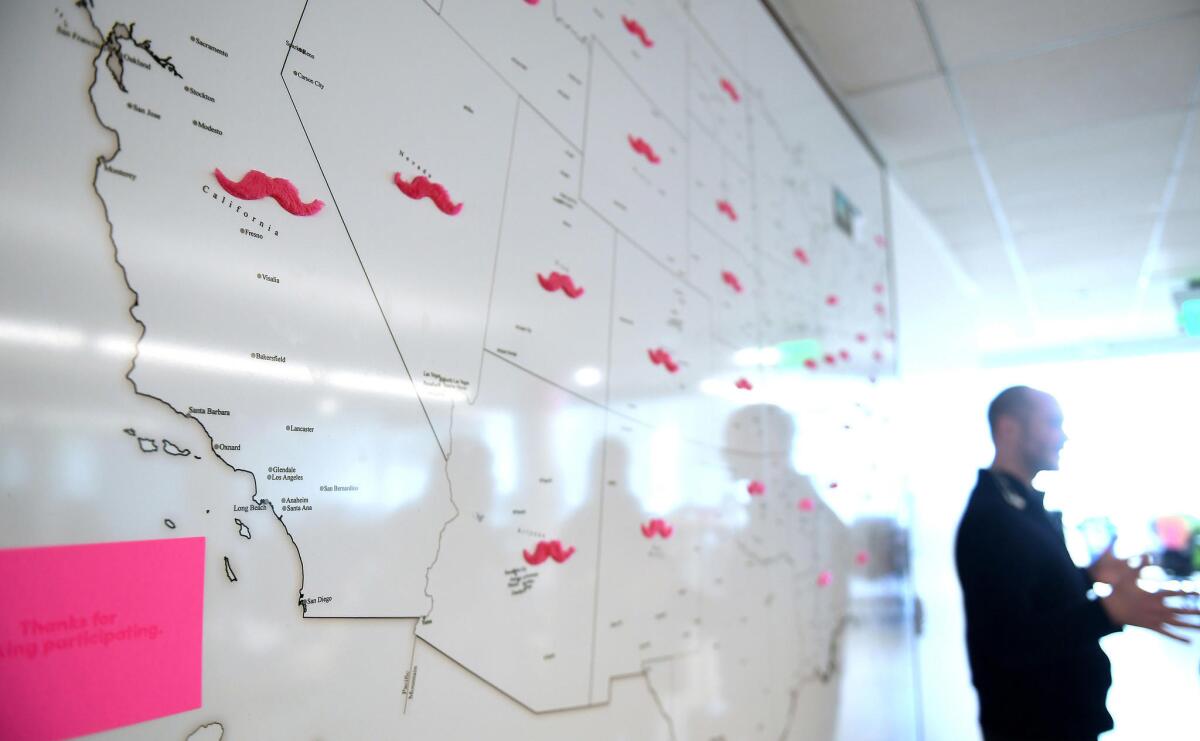
The former political strategist and others who have moved to tech argue that their work is driven by the ability to make societal change in a way that was no longer possible in government.
“Look at what is driving some of the big socioeconomic changes in the world — so much of it is coming from the tech world. And in part that’s all happening at time when there’s been enormous paralysis on the government side,” Lehane said. “So if you’re generally interested in trying to have a positive impact in the world, these platforms or companies end up becoming incredibly compelling.”
The skills learned on the road are invaluable, said Sarah Pompei, who travels the country for Lyft, working to persuade state legislatures to increase access for ride-sharing companies.
The work reminds Pompei of her efforts as a deputy communications director tailoring GOP presidential nominee Mitt Romney’s message in battleground states during the 2012 campaign.
“You have to be pretty nimble, you have to be able to move with whatever’s popping up in that news cycle. The campaign life definitely prepares you for that, from a start-up perspective,” said Pompei, who also worked for Hewlett-Packard after she was spokeswoman for billionaire Meg Whitman’s unsuccessful 2010 California gubernatorial run. “It’s definitely a campaign — but with business hours.”

And the work can prove critical when a company is facing negative press, such as Uber. The company grew aggressively, but critics argue that the same forces that drove its success fermented a troubled corporate environment.
In recent months, the ride-sharing behemoth has faced controversy over allegations of a sexually hostile workplace, its treatment of drivers, its competitive tactics and its founder’s behavior.
Aaron McLear, a GOP strategist who is now Uber’s director of public affairs for the western United States, concedes that the company made mistakes as it grew, but also said it owned up to them quickly and decisively.
“I don’t think the question is are you as a company going to make mistakes. The question is how you respond to mistakes. That’s certainly something we’re certainly going through right now,” said McLear, who worked for President George W. Bush and Schwarzenegger. “The folks who have been through sort of the intense challenges in the political world are well-suited to help navigate companies through those issues.”
The migration from politics to tech was underway in recent years but has intensified in recent months — some Republican operatives who normally would have gone to work for a GOP White House did not seek posts there once Donald Trump was elected. And Democrats who expected to be working in a Hillary Clinton administration needed to find jobs after her unexpected loss in November — Kristina Schake, one of her top surrogates, just became the public face of Instagram. And supporters of President Obama worked to connect members of his administration with tech companies.
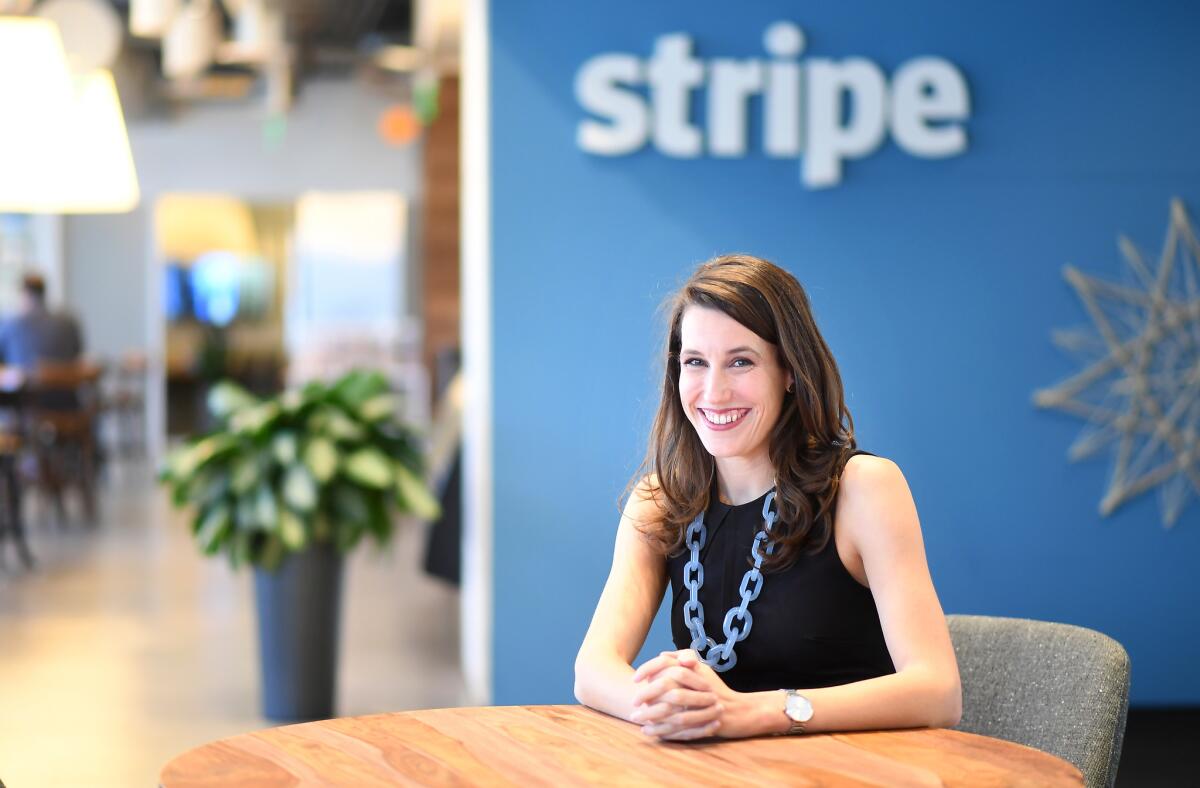
For some, such as Sarah Heck, it was a natural transition. The former director for global engagement on the National Security Council joined the financial firm Stripe in February to help entrepreneurs around the globe, particularly in developing nations, start businesses.
Heck, 32, met one of the company’s founders during Obama’s historic trip to Cuba and said her new work reminded her of the motivation she felt during the former president’s administration.
“This is huge, not something just American, this is the world and I feel really lucky to be part of something that has such an ambitious goal,” she said. “The other common mantra is we haven’t won yet. That was [a constant] throughout the Obama administration — we can always do better.”
Despite Silicon Valley’s liberal leanings, there are numerous and notable Republicans who work here, frequently alongside Democrats
Katie Biber was general counsel for Romney’s 2008 and 2012 presidential bids and also worked for George W. Bush’s Department of Justice. She is now general counsel at Thumbtack, which connects consumers and small-business owners. Her first hire, to be her second in command, was Steven Siger, who worked on Obama’s 2008 presidential campaign and later in his Department of Justice.
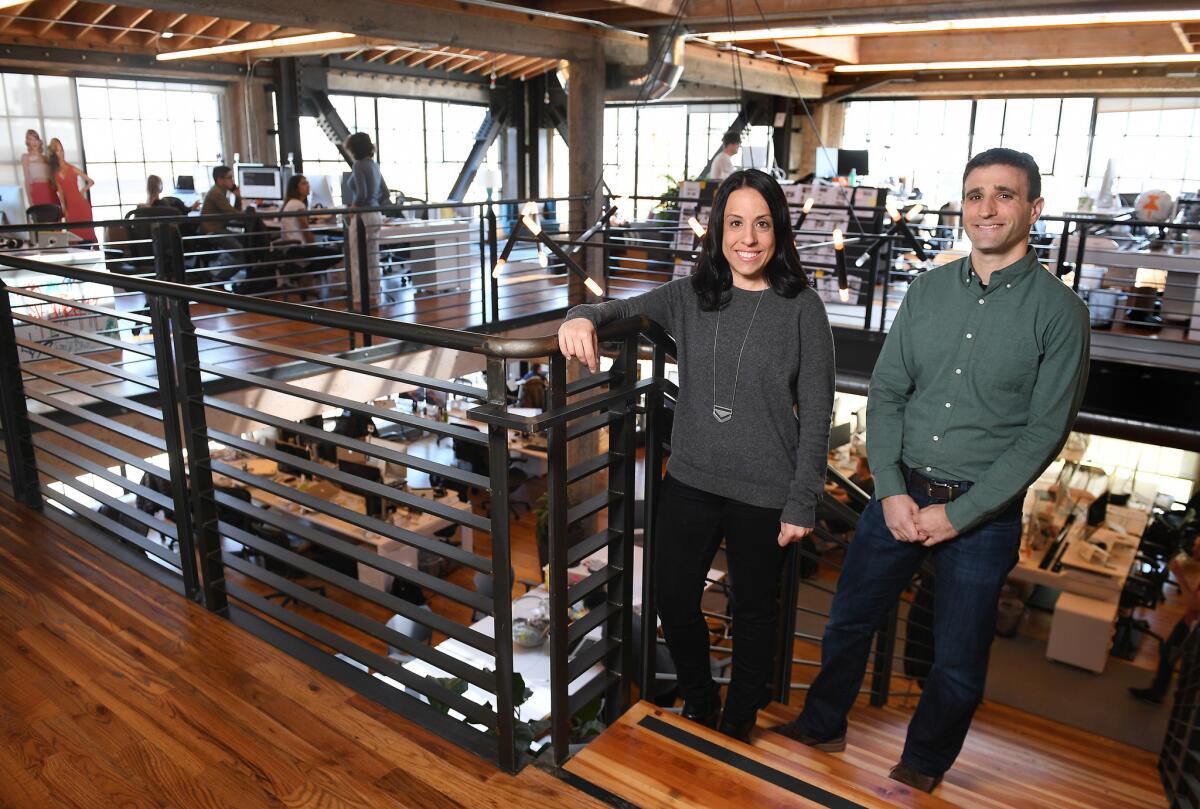
“We sit about four feet from one another, because this is Silicon Valley and no one has an office,” Biber said. “One of the reasons I hired him is because he has viewpoints that are so different from my own.”
Both chuckled as they discussed their morning routine of reading the news in the office.
“We certainly have fun, extra-curricular discussions all the time,” Siger said. “But I think it’s actually an asset for us. Day to day, politics isn’t a big part of our job. But it comes up on occasion, and I think our ability to see issues from all sides — left and right — helps strengthen our decision-making.”
The main difference between their current and former jobs, Biber says, is that there is greater work-life balance and more perks, though the work remains intense.
“In a lot of ways, start-ups are like political campaigns,” Biber said, “with nicer offices and better food.”
Newfound job stability was a benefit mentioned by several politicos who made the switch to work in the tech industry.
Tucker Bounds joined Facebook in 2011 after high-profile positions on the unsuccessful McCain and Whitman campaigns. He recalled his wife’s reaction the day after Republicans did not win the White House in 2012.
“I was getting ready leave for work, and my wife is literally dancing around the kitchen with my baby son, saying, ‘Daddy’s still got a job’,” he said.
For the latest on national and California politics, follow @LATSeema on Twitter.
More to Read
Get the L.A. Times Politics newsletter
Deeply reported insights into legislation, politics and policy from Sacramento, Washington and beyond. In your inbox three times per week.
You may occasionally receive promotional content from the Los Angeles Times.











